- Home
- Chris Wraight
The End Times | The Fall of Altdorf Page 15
The End Times | The Fall of Altdorf Read online
Page 15
‘Just one company, then,’ said Martak, stubbornly. ‘I will lead it myself.’
‘Out of the question.’
Martak bristled. ‘You’re... banning me?’
The insolence was intolerable. For a moment, fatigue made Helborg think he was addressing some dishevelled soldier out on the fields of war, and he nearly drew his blade. ‘This is not a priority,’ he growled.
‘Have you been down to the poor quarter?’
‘Of course not. Do not deflect this to some–’
‘They are dying down there. Dying like dogs.’
‘I cannot be concerned about that now.’
‘Your whole city is dying, Reiksmarshal.’
‘Silence. You have had your–’
‘The city is dying before your eyes and you cannot see it.’
‘I said, silence!’
‘If the Emperor were here–’
‘Enough!’ Helborg’s raw shout echoed from the high vaults, shocking even the hardened warriors into startled looks. ‘Who are you? What pit of filth were you drawn up from, to be thrust into my face like some mockery of your ancient office?’
The words poured like water from Helborg’s mouth. The anger made him feel alive, after so many hours, so many days, biting his tongue and abasing himself before men he would have slain on the battlefield without a second thought. Once he started, he could not stop – it was cathartic, to vent his spleen again, to pour out all his pent-up fury and frustration at a single source.
‘You come here dressed like some peddler from the backwoods of Stirland’s foulest shit-hole and dare to address the Reiksmarshal of the Empire? You dare? I walked these streets for decades while you rolled in the muck of the Reikswood and sniffed the spoor-trails of beasts. This is my city! It is my city! If you wish to challenge that, then Sigmar damn you and you may leave it!’
The echoes lingered for a while after the spittle-laced tirade had ceased. No one spoke. A few mouths hung open.
Martak himself remained icily calm. His brown eyes never left Helborg’s, who stood, trembling with rage, his chin jutting defiantly.
Then, very slowly, Martak drew in a long breath. ‘So we understand one another,’ he said, his gruff, uncultured voice heavy with contempt.
He shuffled from his place, and clumped heavily down to the chamber floor. As he left, his shoulders held stiffly, his clogs clanked noisily against the marble. It took a long time for him to leave, and the clanks rang out uncomfortably until at last he had been ushered into the corridors outside.
Gradually, Helborg recovered his composure. Almost immediately, the loss of control shocked him. Part of him wanted to rush after Martak, to apologise, to explain that he had not slept for days and that the burden of wresting an entire city from its indolence and dragging it into a war that every instinct told him could not be won was more than any man could bear.
But he could not, not with the eyes of the entire council on him. He was still the Reiksmarshal, and a display of weakness now, any weakness, would see the electors onto him like wolves on a lamb.
There were always disagreements. They could be overcome later. For now, what mattered was control – keeping Altdorf together just long enough to give it a chance.
Moving stiffly, he sat down again. The silence in the chamber was total.
Clearing his throat, Helborg turned a leaf of parchment over, moving to the next item on the long agenda.
‘Now then,’ he said, forcing his voice once more into calmness, as if nothing untoward had just happened. ‘Where were we?’
TWELVE
It look Karl Franz a long time to find his quarry. Something had changed since his fall, and a kind of prescience seemed to have lodged in his mind. The world around him seemed a little more vivid than it had done, as if the colours and smells had somehow cranked up. He saw more, he felt more, and his dreams were as startlingly immediate as anything that happened when awake.
Chief among those dreams was the figure of the great antlered god, reeling under the influence of a thousand cuts. Like some stricken stag, the god stumbled in a fog of darkness, assailed from every side by hidden foes. When Karl Franz saw the wounds in the god’s flanks and limbs, he wanted to weep.
He saw other things, too. Every night he had the same vision – a bearded man in dirty robes pacing on the battlements of a far city. In the depths of his slumber, he would call out to that man, not knowing why. He never answered, lost in struggles of his own.
In his waking hours, Karl Franz nursed himself back to something like strength. The wilds of the north were vast beyond imagining, and even with the hordes of Chaos marching through them, there were still blank tracts where he could hide and gather strength. There was even food to be found for those with sharp eyes and a searching mind, and since his rebirth Karl Franz had never had sharper eyes.
He knew he needed to head south, tracing the path of whatever remained of his once-mighty armies. He had no idea how many of his generals had survived. Helborg, surely, was dead, since the greater daemon at Heffengen had been a foe beyond him. He could not quite believe that Schwarzhelm was also gone, nor Huss, but there were no clues as to where they had been driven by fate and the currents of war. His thoughts turned to Valten often. That youth had been the great hope for so many – an image of Sigmar for troubled times. Perhaps he still would be, though it was hard to see what he could accomplish now.
For the time being, though, Karl Franz did not hurry to quit the wasteland. He followed the trails of warbands, creeping close to the bonfires at night and doing what he could to divine the movements of the fractured hosts. He understood some of what they said to one another, picking up meaning from the guttural speech of the north in a way he had never been able to do before. One word was repeated over and over again – Glottkin – though he had no idea what it meant.
He heard other words he did recognise – Talabheim, Drakwald, Altdorf. The plan of attack was simple – striking towards the Empire’s heart, just as he had told Helborg.
He would never make it to the city, though, not alone and on foot. The leaguer had been broken, and he was already a long way north of the rolling battlefront. He was isolated, cut off in a desolate land of refugees and broken corpses.
As the sun set on another lonely day of foraging, Karl Franz crouched low amid a thicket of briars. With a twinge of wry amusement, he wondered how he must have looked – the Emperor of the greatest realm of men on earth, crouching like a beggar amid thorns, his beard ragged and his clothes torn.
Ahead of him, blood-red in the gathering dusk, burned another campfire. Armed men sat around it, grunting and slurping. Something turned on a spit above the coals, too big to be a hog, though with a similar stench to burning pork. There must have been over twenty warriors there, hulking tribesmen from the far reaches of the Chaos Wastes with bones hammered through their cheeks and god-marks inked on nearly every inch of exposed flesh.
They were careless, marching through a land they had scoured of enemies, and the watch was lax. Karl Franz saw a ramshackle corral on the far side of the camp, and noted the lack of guards. Just one sentry, half-asleep and resentful at being banished from the fireside, huddled against the driving wind, wrapped in a thick, fur-lined cloak.
Going silently, keeping low, Karl Franz crept away from the flickering light-circle and skirted around the edge of the campsite. Hugging the scant cover of the thorn-bushes, he edged closer to the lone sentry. Once within strike-range, he crouched down again, his hand on the hilt of his blade, and waited for the moment.
The sentry was a balding, bearded man with boiled leather armour and an iron ring through his nose. His head slid forward, his eyes half-closed.
Karl Franz moved. Padding softly, he sprinted over to the half-aware guard. Before he had had time to look up, Drachenzahn had slipped silently into his neck, killing him instantly. Karl Franz lowered the body to the ground, casting a wary eye over at the campfire.
The tribesmen were sti
ll eating, tearing chunks of meat from the spit and ripping it with their teeth. Karl Franz propped the sentry back up, making it look as if he was simply slumped against the cold earth, then moved towards the stockade.
It was a clumsy, makeshift thing, no more than shafts of wood nailed loosely together and crowned with a crude fence of twisted thorn-vines. By rights it should not have held its prisoner for more than a few moments. Karl Franz could already smell the familiar musk, though there was something else there too – the over-sweet tang of muscle rot.
He prised the planks of the stockade apart, and squeezed inside. Deathclaw immediately hissed, and tried to rise, but long leather bindings held the creature down. Karl Franz hurried over to the griffon, sheathing his blade.
‘Calm, great one,’ he whispered. ‘You know your master.’
The huge creature immediately relaxed, and the hissing turned to a low rumble within its cavernous chest.
The creature had been sorely abused. Both wings looked broken, and dozens of arrow-shafts protruded from its flanks. Clumps of plumage had been ripped from its haunches, leaving bloody weals glistening wetly in the faint light. It had been tied to stakes hammered into the ground, its limbs compressed into a permanent crouch.
As soon as Karl Franz had severed the last of the leather bindings, the griffon nearly collapsed, issuing a strangled caw of pain as its tormented muscles gave way.
Karl Franz hurried over to its head, cradling the thick neck in his arms. He reached for the amulet and pressed it against the creature’s rapidly beating heart.
Gradually, the griffon’s yellow eye regained focus. Its heartbeat slowed to normal, and something like firmness returned to its stance.
‘This will be painful,’ said Karl Franz, hearing the first noises of alarm from the campfire. ‘But it is better to be alive and in pain, yes?’
Deathclaw hissed an angry response. From outside the stockade, Karl Franz heard the tramp of boots running and the cries of the blasphemous northern tongue.
‘You have the strength for this?’ he asked, brandishing his runefang.
By way of answer, Deathclaw dragged itself to its haunches, staggered over to the corral’s wall and hurled itself into it. Freed from its bonds, it smashed through the wooden staves, ripping them up and tossing them aside with an imperious flash of copper-gold plumage. The Norscans halted in their charge, suddenly faced with a freed griffon, one whose anger they had stoked over long nights of torment and who now faced them with the flash of bestial fury in its eyes.
‘The vengeance of Sigmar!’ roared Karl Franz, charging into battle alongside the enraged Deathclaw. Even wounded, the unshackled creature was more than a match for its captors, and Drachenzahn knew it would drink deep before the night was done.
The Norscans charged straight back at them, bellowing their strange war-curses with flamboyant bravery. As Karl Franz scythed his blade around for the first strike, cracking heavily against a blunted axe-face, he felt a strange euphoria thrill through his ravaged body.
I am fighting again, he thought, as the runefang danced and the shrieks of the enraged war-griffon split the night. May it never cease.
The town of Wurtbad clung to the southern shore of the Reik, a sprawling conurbation built by the trading guilds who plied the great river barges down to Altdorf and the coast beyond. It was not distinguished by grand buildings or fine fortifications – it was a functional place, built by practical men for practical purposes. A thick stone wall ringed a motley collection of townhouses, inns, warehouses and loading derricks. Even by the standards of the provinces, it had always had a shady reputation, the kind of place a cunning man would make a fortune and a simple one would lose it. Taverns and bawdy-houses crowded the streets, jostling alongside temples, barracks and customs stations.
Since the start of the troubles, Wurtbad had been hit hard. First the barges had stopped coming down from the north. No explanation for the stop in traffic had ever been forthcoming, so the burgomeister sent members of the City Watch upriver to investigate. They came back on a single, empty vessel, hanging from meat-hooks amid piles of rotting pig carcasses.
Then news of the war in the north had come in, carried by draggled refugees from Stirland and the Ostermark. As the Empire’s creaking war-machine responded, some of the cannier Wurtbad merchants made a quick profit hawking supplies to desperate generals at inflated prices. For a time, the passage of arms wending its way up the river from Nuln and Altdorf kept the taverns and brothels in roaring business, and, also for a time, a steady flow of regiments kept coming to replace those ordered onwards.
Then the flow dried up. Every company due to be sent to the distant front was deployed, hollowing out the defences along the Reik and the Stir. The streets fell quiet and the warehouses were locked. Barges stood empty at their berths, waiting for trade to resume, just as it always had when the worst was over.
Except that, this time, no soldiers returned from the north. No proclamations came out of Altdorf celebrating deliverance in Sigmar’s name. The temples began to fill, as a previously ambivalent populace suddenly remembered its piety.
The plagues came next. No one knew from where – perhaps the thick miasmas churning in from the east, or the lines of impoverished peasants fleeing the blight in the fields, or the curdling waters themselves as they lapped the empty wharfs. Soon the bodies were piling up, and every dawn a new cart left the town gates, heaped high with cloth-covered lumps. After a while even those stopped – no one dared venture out to where the forest sprouted unnaturally under the endless sheets of rain, and so the dead lay festering in the rubbish pits where they had been dragged.
By the time the watchmen on the southern wall caught sight of black banners on the far horizon, few believed the newcomers brought salvation with them. A few zealots started chanting, taking a kind of perverse, vicious pleasure in the vindication of their endless prophecies of the End Times. The rest of the city’s survivors grimly took up arms. The gates remained locked and barred, and every surviving militia member was called to the armouries to equip. Then they waited, watching the sable-clad host creep closer through the cloying mists.
The new arrivals did not advance further while the sun shone. They waited south of the river, issuing no challenge and making no demands. Inside the town, a vociferous and terrified faction argued that the burgomeister should sue for peace, since the garrison was in no condition to resist a siege and the Empire, such as it still was, had clearly abandoned them. By nightfall, as the true nature of the attackers became horrifyingly clear, those voices subsided, and a gnawing, crawling fog of despair took over.
Ghouls flickered through the frigid air, screaming at a gravid Morrslieb above. Flocks of bats raced across the sky, their blood-red eyes glowing in the velvet dark. Rank upon rank of bone-white warriors advanced under death’s-head banners, never issuing a sound. Some warriors stalked by their own will; others glowed luminously from within with the flickering light of corposant, impelled by the necromancers who cried out in grave-scraped voices and whirled staffs hung with clattering human skulls.
Black-armoured knights nudged bony steeds through the undead throng, and wights wearing ancient tomb-garb limped and shuffled in their wake. Most horrifying of all were the vargheists, which loped into battle with huge, ungainly strides, half-flying, half-running, their animalistic faces twisted with bloodlust and their claws already extended.
At the sight of that onslaught, many of Wurtbad’s mortal defenders lost heart and fled, wailing that the gods had abandoned them, trying to find somewhere in the shadowy maze of the narrow streets to hide. Others stood firmer. The burgomeister, Jens Bohr, was a veteran of the state levy and had faced down larger armies of greenskins in his time. His warrior priest, a fervent Sigmarite by the name of Kalvin Wolff, whipped the remaining troopers into a frenzy of pious defiance. Huge fires were kindled across the walls, flooding the land beyond in a writhing aura of crimson. Every captain on the walls was given a flaming brand, and tea
ms of runners kept the stores of wood replenished. Desperate battle-hymns rose up from the battlements, competing with the shrieks of the living dead.
That did not stop the vice closing. Gradually, the undead host spread out, moving up the southern bank of the Stir and crossing the flood on either side of the town. The still-living troops traversed using barges looted from further upstream, while the truly dead simply waded across the river bed, emerging on the far bank covered in a thick layer of slime and weeds.
Then, once Wurtbad had been fully surrounded, the assault began.
The night’s cacophony was broken by the snap and rattle of trebuchets. The warped machines, looking more like giant ribcages than engines of war, hurled clusters of human skulls high over the walls, and where they impacted, they exploded in gouts of greenish gas. Any defenders too close to the impacts immediately succumbed to the blooms, their skin falling in shreds from their bones. They died in agony, clawing at their own sinews as their bodies fell apart around them.
Next came the bats. Some were taken down by hurried volleys of arrows, but most got through, grabbing men from the parapet and sending them tumbling, their chests torn out. Ghouls and grave-shades followed, floating eerily over the defensive perimeter in shimmering clusters and latching their cold magic around any who dared face them.
As the walls were ringed with horrors, the greater mass of skeletons and zombies reached the base and started to raise siege ladders. Dozens were cast down by the defenders, but more were immediately hoisted up. Whenever a weakness was isolated, deathly warriors surged up into the breach, falling into soundless combat with the troopers who rushed to repel them.
For all the ferocity of the initial assault, however, the main ring of defence held firm. The roaring fires did their job, daunting the undead horde and preventing them from advancing recklessly. Wolff kept up his furious defiance, showing the way by smashing swathes of skeletons apart with his warhammer. Bohr used his limited corps of gunners well, picking out champions with as much accuracy as the fire-flared night would allow.

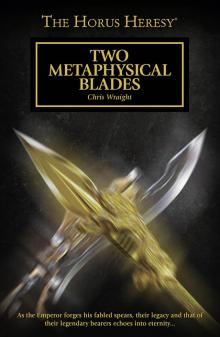 Two Metaphysical Blades
Two Metaphysical Blades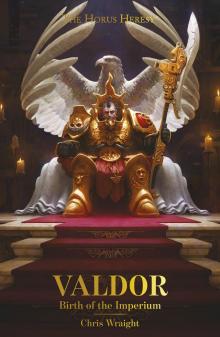 Valdor: Birth of the Imperium
Valdor: Birth of the Imperium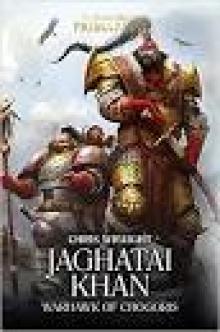 JAGHATAI KHAN WARHAWK OF CHOGORIS
JAGHATAI KHAN WARHAWK OF CHOGORIS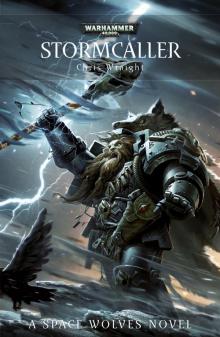 Stormcaller
Stormcaller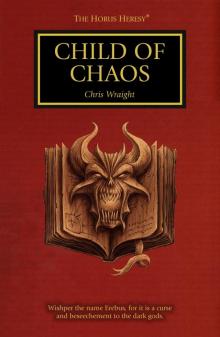 Child of Chaos
Child of Chaos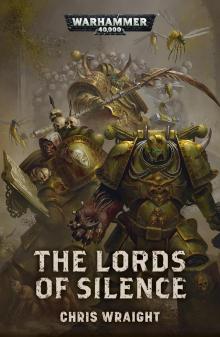 The Lords of Silence
The Lords of Silence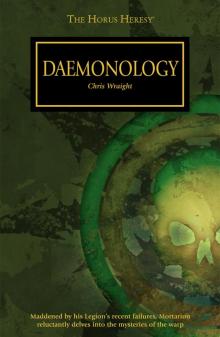 Daemonology
Daemonology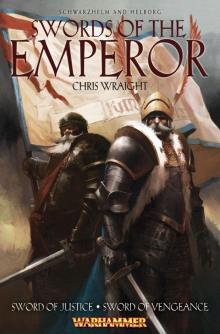 Swords of the Emperor
Swords of the Emperor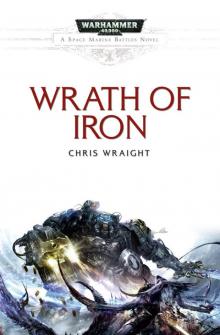 Wrath of Iron
Wrath of Iron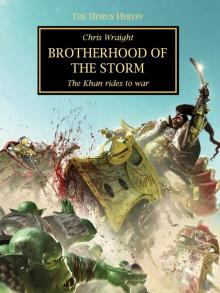 Brothers of the Storm
Brothers of the Storm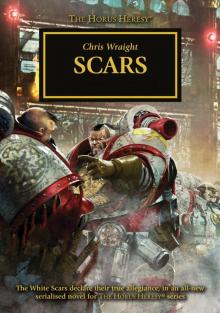 Horus Heresy: Scars
Horus Heresy: Scars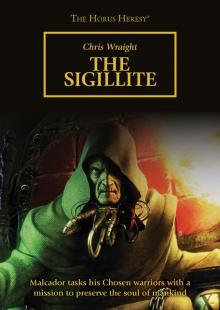 The Sigillite
The Sigillite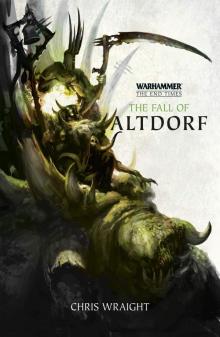 The End Times | The Fall of Altdorf
The End Times | The Fall of Altdorf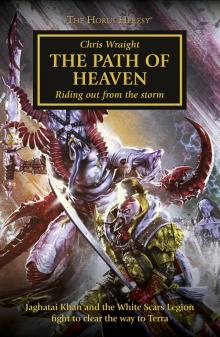 The Path of Heaven
The Path of Heaven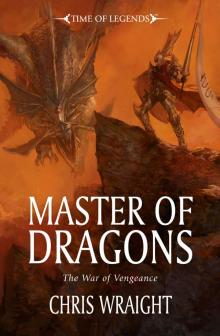 Master of Dragons
Master of Dragons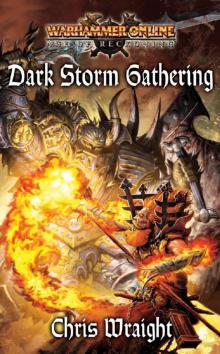 WH-Warhammer Online-Age of Reckoning 02(R)-Dark Storm Gathering
WH-Warhammer Online-Age of Reckoning 02(R)-Dark Storm Gathering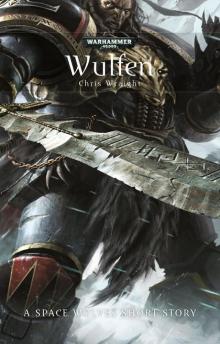 Wulfen
Wulfen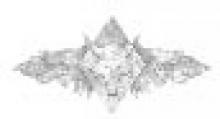 Battle Of The Fang
Battle Of The Fang Onyx
Onyx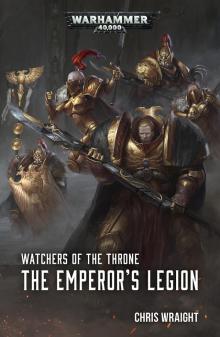 Watchers of the Throne: The Emperor’s Legion
Watchers of the Throne: The Emperor’s Legion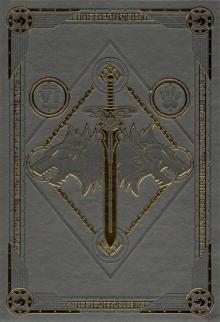 Leman Russ: The Great Wolf
Leman Russ: The Great Wolf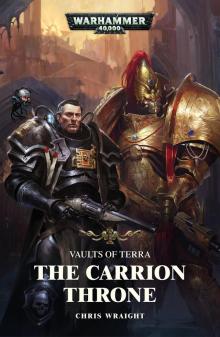 Vaults of Terra: The Carrion Throne
Vaults of Terra: The Carrion Throne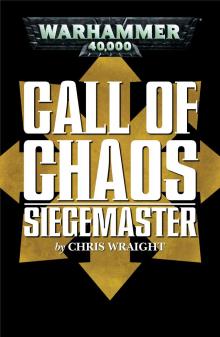 Siegemaster
Siegemaster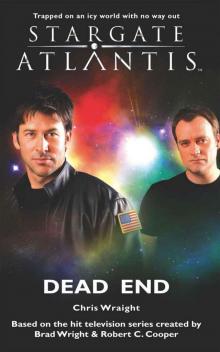 STARGATE ATLANTIS: Dead End
STARGATE ATLANTIS: Dead End Scars
Scars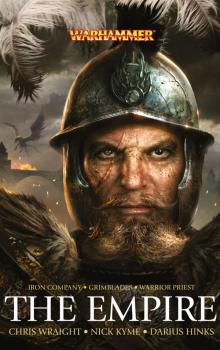 The Empire Omnibus
The Empire Omnibus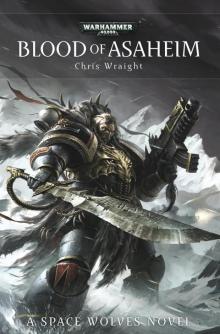 Blood of Asaheim
Blood of Asaheim